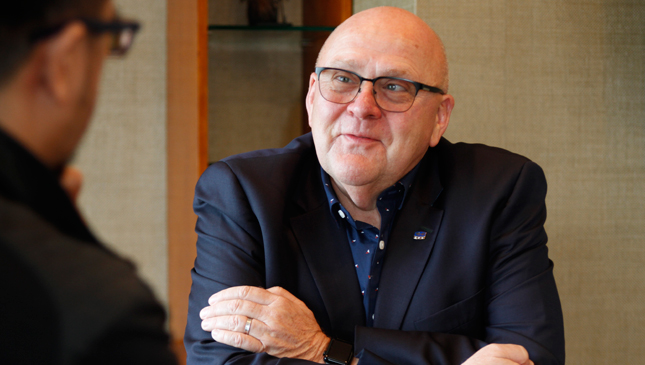- "As soon as you make out you know everything, you shut down all the opportunity to learn more and get different points of view," Ridge stated. "So, in addition to becoming at ease with saying "I don't know," I also find myself questioning myself, "Why do I think that?," more and more these days. due to how swiftly the world is changing."
Where technological advancements often take the spotlight, the significance of emotional intelligence can sometimes be overlooked to a point of negligence.
Nearly ten years ago in a report by Inc. Africa, Nadella spoke to hundreds of kids about their future and opportunities in a widely reported event. He discussed the significance of cultivating emotional intelligence (EQ) during his address.
However, leaders like Satya Nadella, the executive chairman and CEO of Microsoft have shown that emotional intelligence is not just a nice-to-have trait but a crucial element for achieving lasting success in the corporate landscape.
There are several ways that leaders and high achievers can utilize emotional intelligence as a strength to improve their own performance and the workplace.
1. Give people a voice
According to Nadella's account of his professional experience from two decades ago, he reported to an executive with EQ and took away a vital lesson that he still gets to apply today.
“I was in charge of a group working on a difficult assignment. There was a lot of pressure and a significant level of anxiety.
A quiet team member was having trouble speaking up in the midst of the confusion. Rather than imposing his own ideas on the team member, our boss, the executive, stepped back and said, "What do you think?”
The impact was remarkable. The team member's expression brightened as he started to discuss his observations. As it happened, he had a wonderful answer that no one had thought of before.
The project proved to be a huge success, and we all took away a valuable lesson: being a leader meant respecting and enabling other people.
2. Lead with authenticity
Being unduly sentimental or soft-hearted is not a prerequisite for emotional intelligence.
It involves being aware of the feelings, drives, and goals of the others you collaborate with. It all comes down to fostering an atmosphere where everyone is respected and heard.
The secret is to lead with sincerity, actively listen, and show empathy.
It's identifying and controlling one's own emotions because a high achiever or leader who is unable or unwilling to control their own emotions frequently finds it difficult to effectively manage a team.
3. Acknowledge you don't know everything
Admitting you don't know something might be awkward when people expect you to have the answer. During his tenure as CEO of WD-40 Company, Garry Ridge, now Chairman Emeritus, held an unconventional viewpoint.
"I don't know" is the most potent three words that Ridge has ever encountered in his life. He started to learn and develop when he learned to be okay with not knowing.
"As soon as you make out you know everything, you shut down all the opportunity to learn more and get different points of view," Ridge stated. "So, in addition to becoming at ease with saying "I don't know," I also find myself questioning myself, "Why do I think that?," more and more these days. due to how swiftly the world is changing."
Remember this as you examine your own leadership style: True leadership is about fostering an environment where people's creativity may flourish rather than possessing all the answers.
Regarding Satya Nadella, he is still in charge of Microsoft and demonstrates that emotional intelligence is more than just a catchphrase; rather, it is a potent force that has the ability to influence how people lead in the tech industry and beyond.


-1771054698-md.jpeg)




-1771054698-sm.jpeg)


